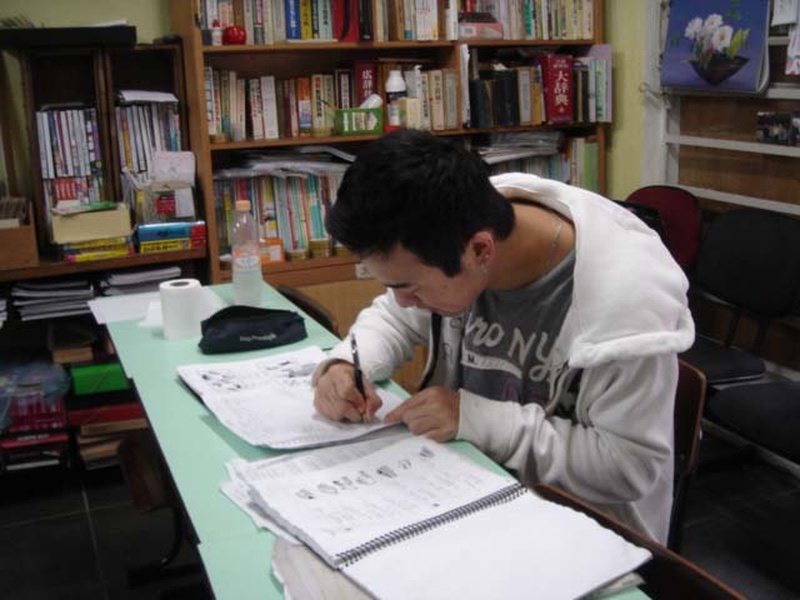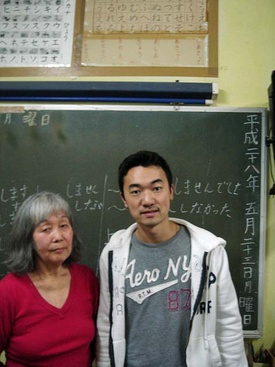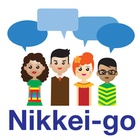With this word Hayaku spoken in a firm voice and repeatedly, my mother woke me up every morning so as not to be late for school. Hayaku was also speaking! Hayaku! that she rushed us to do things, because slowness is not her thing. In fact, to this day my mother is known as “Amélia Hayaku Hayaku”.
I am a third-generation Nikkei, my father and mother were born in Brazil, my maternal grandmother was born in Brazil and my paternal grandparents came as immigrants from Japan.
As a child, my brothers and I learned from my grandparents on my father's side that we have to call my father Otoosan and my mother Okaasan . No “daddy” and “mommy”. We still have this custom today.
Although my parents were born in Brazil, since I was a child I have been accustomed to Japanese words that we use in the family such as : gohan, misoshiru, tsukemono, tofu, sushi, sashimi, mochi – all names of foods that I really like – and other words such as: futon, makura, mofu, shikifu, kasa, ofuro, okane . Imagine the confusion of mixing Japanese into Portuguese conversations.
As a child, my brother and I would go into the hot tub with my father and I remember my father would say: “C hapu-chapu ” and we would make a mess by hitting the water that filled the bathtub. And when we slathered ourselves eating tororo or mochi with soy sauce , my mother said: “What a beta-beta !” I find the onomatopoeia of the Japanese language very interesting.
My mother, in particular, mixes a lot of Japanese words when we are with the family and, when I started writing this chronicle, we both started remembering and laughed a lot.
“Take a coat because you’re samui .” – she said when we went out, making sure we didn't get cold. “Don’t walk down the street distracted by these things, because dorobo and abunai are coming!” – it was the time when I was hooked up to the Game Boy , a game that my cousin brought from Japan. My mother was worried if some thief was going to steal from me.
And when my brother wrote in the school essay: “At home I eat saji ”, there was nothing but laughter at home. Did the teacher guess that saji means spoon in Japanese?
Another thing I remember is that we (my older brother, my older sister and I) would make a mess running around the house shouting, “I’m going to play hanakuso on you!” Well, I think my Brazilian colleagues didn't understand why there was so much fuss. Now, I'm sorry to those who don't know what hanakuso is, because I know what it is, but I don't know how it translates into Portuguese...
I study Production Engineering at university and until December last year I was working, but I am currently unemployed. So, a friend and I started planning our trip to Japan to work as a dekasegi . We want to save money by working in Japan and after returning, get a good job here.
After I made the decision, the first thing I did was study Japanese so I could get by there. Even at the agency they said that it is important to know how to read and write hiragana and katakana . In March I started taking private nihongo lessons every day. The sensei is called Yasuyo Kojima Nagahisa, she is very dedicated and always encourages me by saying “Gambatte kudasai!”.
In the first class I got scared, because I thought I knew a little Japanese and I said : Ohayo gozaimasu ! But it was 11 am and sensei taught that the right thing to do is to say hello: Konnichiwa!
Self-presentation is something I didn't know and now that I've learned it, I'm practicing it. The words are written here as they are pronounced:
Hajimemashite. Oki Takashi Willian desu.
Burajiru umare no Nikkei sansei desu.
Haha to ani to ane to São Paulo ni sunde imasu.
Shumi wa eega wo miru koto, kooen de jogingu suru koto, puuru de oyogu koto to jimu de ase o nagasu koto. Sakka mo sukidesu.
Burajiru no natsu wa totemo atsuikeredo, umi de asobunoga saikoo desu.
Nihon de 1 ~ 2nen hodo hataraite, Burajiru ni modatte shigoto o shitaidesu. Gambarimasu!
Doozo yoroshiku onegai shimasu.
To tell the truth, I'm able to read and understand a lot of things, but the hardest part is understanding and knowing how to respond appropriately.
As for writing in hiragana and katakana , my handwriting actually looks like handwriting, that's what a friend of my mother said. I'm trying really hard and I intend to finish studying all the booklets.
Hayaku! Hayaku!
Before boarding, I think I'm going to record my mother's voice calling me so I don't waste time. Because in Japan, you don't even think about wasting time, you have to wake up at the right time, have breakfast at the right time, show up for work at the right time and work the way they want. God help me!
© 2016 Willian Takashi Oki





